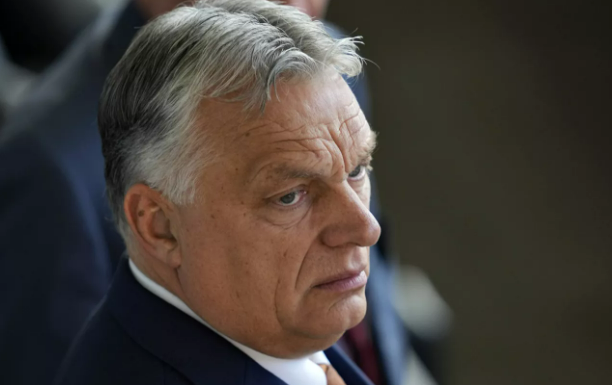Top EU Leaders to Skip Meetings with Hungary’s Orbán Over Russia and China Outreach

In a significant diplomatic move, top officials from the European Union have announced they will boycott informal meetings hosted by Hungary during its six-month EU presidency. This decision follows Hungarian Prime Minister Viktor Orbán’s recent series of contentious meetings with international leaders on the Ukraine conflict, which have sparked anger among his European counterparts.
The European Commission’s spokesperson, Eric Mamer, confirmed on Monday that the boycott is a direct response to Orbán’s actions since Hungary assumed the EU’s rotating presidency on July 1. Orbán’s “peace mission,” which included visits to Ukraine, Russia, Azerbaijan, China, and the United States, has been criticized for lacking prior consultation with EU leaders and for Orbán’s unauthorized engagements with Vladimir Putin and Xi Jinping.
The Commission’s decision means that while senior civil servants will continue to attend meetings hosted in Budapest, high-profile officials, including European Commission President Ursula von der Leyen, will be absent. The move underscores the EU’s disapproval of Orbán’s approach and his apparent deviation from the bloc’s unified stance on the Ukraine crisis.
Hungary’s European Affairs Minister, János Bóka, and government spokesperson, Zoltán Kovács, have criticized the Commission’s decision, suggesting it reflects political bias rather than institutional necessity. Bóka argued that the Commission is selectively engaging with member states based on political motivations, while Kovács accused it of sacrificing institutional integrity for ideological reasons.
Orbán has been criticized for his refusal to supply military aid to Ukraine and for threatening to block EU financial support for the war-torn country. Despite these controversies, Orbán’s political director, Balázs Orbán (not related to the Prime Minister), claimed that Orbán had kept other EU leaders informed about his negotiations and proposed solutions for the conflict.
In response, von der Leyen accused Orbán of attempting to appease Russia with his diplomatic efforts, asserting on social media, “Appeasement will not stop Putin. Only unity and determination will pave the path to a comprehensive, just, and lasting peace in Ukraine.”
Hungary’s stance has been marked by its call for a cease-fire and peace negotiations, but it has not provided clear plans regarding Ukraine’s territorial integrity or Hungary’s security. Orbán’s critics argue that his actions undermine EU and NATO unity and pursue a dangerous appeasement strategy towards Russia.
As the situation unfolds, the EU’s response will likely shape future interactions and highlight ongoing tensions within the bloc concerning its approach to the Ukraine conflict and relations with Russia.
